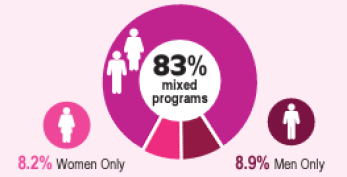

Applying interventions designed to reduce and manage the symptoms of substance use disorders.
Terje Gunnar Ogden, Kristine Amlund Hagen
Parent Management Training- the Oregon model (PMTO) was introduced as a treatment alternative to families in both child welfare services and child psychiatric out-patient clinics in Norway, in...
Cílem tohoto pokynu je zlepšit kvalitu péče a výsledků léčby u pacientů s poruchou užívání alkoholu (AUD), jak je definována v DSM-5 (Americká psychiatrická asociace 2013). Pokyny se zaměřují konkrétně na farmakologickou léčbu...
Screening, Brief Intervention, and Referral to Treatment (SBIRT) is an evidence-based approach to reducing substance use in adolescents. An emerging literature shows the promise of school-based SBIRT. However, most school-based...
Key studies on the role of management and supervision in the treatment of problem drug use. Commentary asks, “Is there anything more instructive than *being* the patient?”, explores the role of patient choice and preferences in treatment...
Background: Alcohol and other drug use is associated with poor sleep quality and quantity, but there is limited qualitative research exploring substance users’ experiences of sleep and few psychosocial sleep interventions for...
Úvod: Duální poruchy (DD) jsou definovány jako souběžný výskyt poruch spojených s užíváním návykových látek s jinými psychiatrickými poruchami po celou dobu života. DD představují diagnostický rozměr s klinickými zvláštnostmi...
This article highlights the overburdened health system in West Virginia, including a shortage of behavioral treatment professionals.
ABSTRACT
Objectives: The study examined sex differences in trend and clinical characteristics of cannabis use disorder (CUD) diagnosis involved hospitalizations among adult patients.
Methods: We analyzed hospitalization data from the...
The purpose of the Appropriate Use of Drug Testing in Clinical Addiction Medicine is to provide guidance about the effective use of drug testing in the identification, diagnosis, treatment, and promotion of recovery for patients...
In Latin America, substance related disorders are highly prevalent and one of the treatment strategies is the Therapeutic Communities (TCs), however, in Latin America there is scarce data about this treatment...
This research project on drug-treatment systems in prisons in Eastern and South-East Europe looks in detail into the situation of drug users among criminal justice populations and the corresponding health-care responses in nine countries in...
'Million Hearts' is an initiative launched by the U.S. Department of Health and Human Services that aims to prevent 1 million heart attacks and strokes by promoting evidence-based intervention through communities, health systems, non-profit...
Keeping Youth Drug Free is a new publication from the Substance Abuse and Mental Health Services Administration (SAMHSA). Aimed at parents, the guide offers advice for keeping children substance-free. It includes a review of the latest...
Substance use is common among people living with HIV (PLHIV) and is associated with worse outcomes along the HIV care continuum. One potentially effective clinic-based approach to addressing unhealthy substance use...
At the front line the practitioner is to the patient the face of addiction treatment. Key research shows they can matter enormously - not so much in their formal qualifications, but in their manner with the patients. Other times it seems a...
Screening and brief intervention (SBI) for unhealthy drinking has not been widely implemented in primary care partly due to reliance on physicians to perform it.
We implemented a model of nursing...
Problem gambling in the UK is reported to affect around 590,000 people.
The condition can be treated via a range of approaches, including cognitive behavioural therapy and medication.
Published in the journal Translational Psychiatry...
The first matrix cell on treatment (as opposed to harm reduction) seems a good time to ask: What is treatment there to do? ‘Cure’ addiction, or promote meaningful and productive lives? Meet patients’ wishes, or aid the government’s welfare...
Consolidates the lessons of the first five instalments of the online course on drug treatment research. The five cells in row 1 explored key research on reducing harm to the user as a result of their drug use. Prompted by HIV, from the...
Substance use disorders are one of the most common and debilitating mental health conditions experienced by youth, and several well-established risk factors exist that contribute to the development and persistence of SUDs...
Share the Knowledge: ISSUP members can post in the Knowledge Share – Sign in or become a member